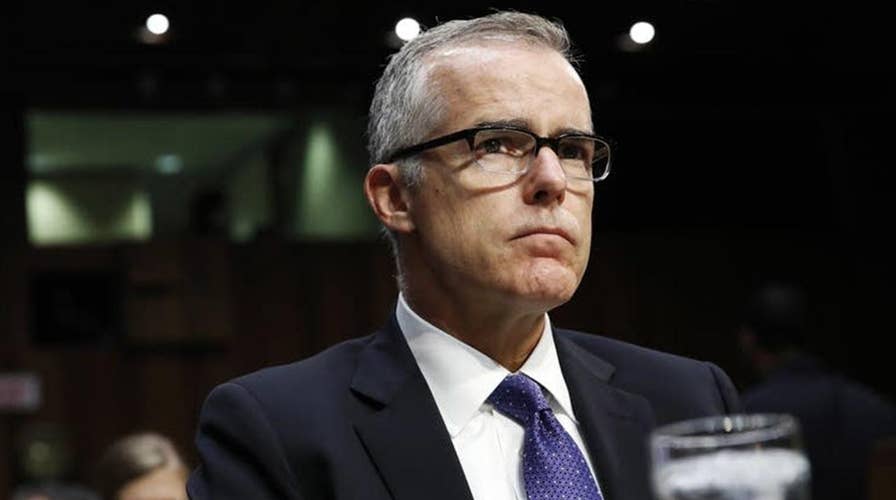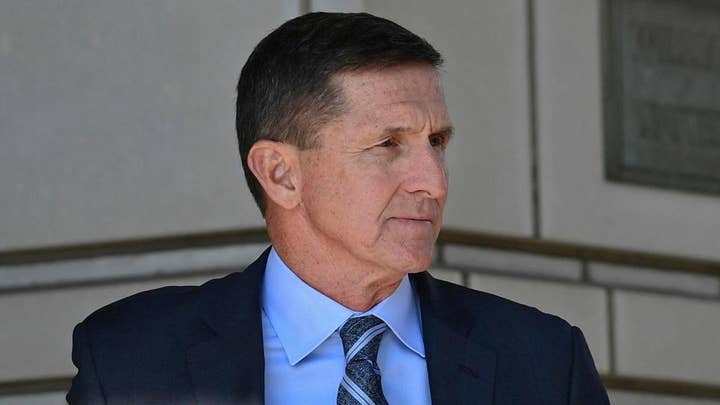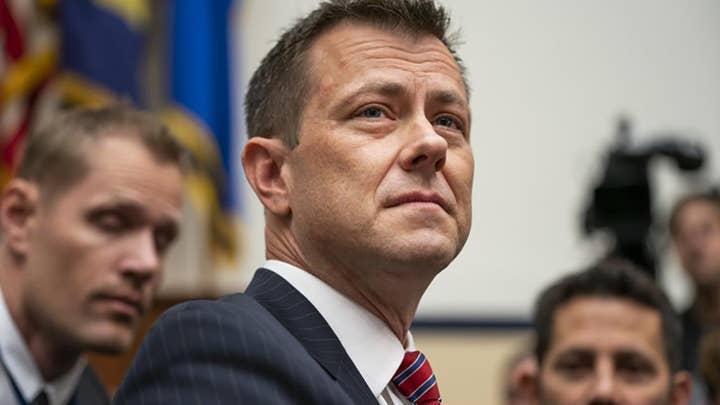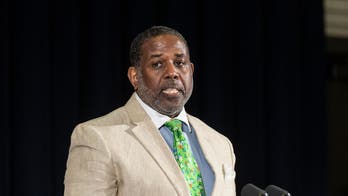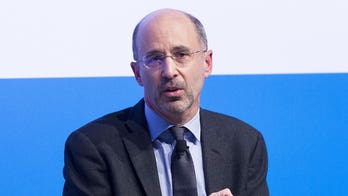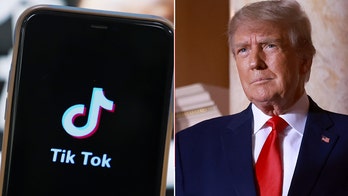Republicans threaten to subpoena the 'McCabe memos'
Two sources tell Fox News that the memos drafted by former Deputy Director Andrew McCabe cover the May 2017 discussions of an obstruction case against President Trump, the firing of FBI Director James Comey, as well as the controversial 'wire' comment by Rod Rosenstein; chief intelligence correspondent Catherine Herridge reports.
The FBI initiated an investigation in March 2017 concerning an alleged, previously unreported media leak about President Trump and former National Security Advisor Michael Flynn -- and since-fired FBI Deputy Director Andrew McCabe was a witness in the probe, newly released documents publicly posted by the FBI show.
McCabe was fired in March just before his planned retirement by Attorney General Jeff Sessions, following a review by the DOJ's internal watchdog that found McCabe "repeatedly" lied to investigators about his knowledge of leaks to the Wall Street Journal regarding the agency's probe into the Clinton Foundation. In reality, McCabe had authorized a series of leaks, according to the DOJ's Inspector General, and he reportedly is under a grand jury investigation to determine if any criminal wrongdoing took place.
Monday's document release by the FBI suggested McCabe may have had some knowledge about an additional leak that was not previously disclosed, even though McCabe was not a subject of the leak investigation. Along with McCabe, two FBI assistant directors and an unidentified individual are listed as witnesses in the probe.
In mid-February 2017, the bureau's Office of Public Affairs "was electronically contacted" by a source "regarding a media leak involving a statement overheard in early February 2017, allegedly made by FBI EM [executive management].
"Specifically, the alleged comments were made by DD [Deputy Director] A.G. McCabe and pertained to General Michael T. Flynn and the POTUS [President of the United States]," according to one document. The source's name was redacted in the public document release.
The alleged leak occurred the same month that Flynn resigned from the White House, amid a flurry of media attention.
A month later, on March 20, 2017, a "full investigation" into the possible leak was authorized, according to the documents. It was not clear how the investigation progressed or concluded based on the documents provided by the FBI on Monday.
McCabe oversaw the investigation into Flynn, who admitted falsely telling FBI agents that he had didn't encourage then-Russian Ambassador Sergey Kislyak in December 2016 to "refrain from escalating the situation" in the wake of sanctions imposed against Russia by then-President Obama.
McCabe testified that the two agents who interviewed Flynn "didn't think he was lying," and former FBI Director James Comey testified that “the agents … discerned no physical indications of deception. They didn’t see any change in posture, in tone, in inflection, in eye contact. They saw nothing that indicated to them that he knew he was lying to them.”
However, when FBI officials confronted White House attorneys with transcripts of Flynn's calls that contradicted his statements to authorities, Trump fired him less than a month into his tenure, saying he also had misled the White House.
Flynn pleaded guilty in December to one count of making false statements to the FBI about his conversations with Kislyak during the presidential transition as part of a plea deal with prosecutors. His sentencing is expected later this year.
MCCABE STOPS TAKING ONLINE DONATIONS AFTER GOFUNDME HITS $500G
News of the FBI's probe into McCabe came the same day that the former security director for the Senate Intelligence Committee pleaded guilty to one count of giving a false statement to FBI agents looking into leaks of national security information to several reporters, including one at the New York Times he'd dated.
And, just weeks ago, once-secret text messages revealed that anti-Trump ex-FBI officials Peter Strzok and Lisa Page had discussed a “media leak strategy” amid the Russia probe -- even as Strzok's attorney claimed the text merely referred to efforts to stop leaks.
In a September letter to Deputy Attorney General Rod Rosenstein, Rep. Mark Meadows, R-N.C., raised “grave concerns” about an “apparent systemic culture of media leaking” among high-level FBI and Justice Department officials to release information damaging to Trump. He cited two text exchanges in April 2017 between now-fired FBI agent Strzok and former FBI attorney Page, in which the two discuss the bureau's "media leak strategy."
"I had literally just gone to find this phone to tell you I want to talk to you about media leak strategy with DOJ before you go," Strzok texted Page on April 10, 2017, according to Meadows, who cited newly produced documents from the Justice Department.
On April 22, Strzok wrote, "article is out! Well done, Page," and on April 12 he told her that two negative articles about Page's "namesake" would soon come out, according to Meadows. That was an apparent reference to Carter Page, the former Trump adviser whom the FBI surveilled for months after obtaining a warrant from the Foreign Intelligence Surveillance Act (FISA) court.
Republicans have charged that the FBI provided misleading or inaccurate information to the FISA court to obtain the warrant. In particular, the FBI incorrectly suggested to the FISA court that a Yahoo News article provided an independent basis to monitor Page, when that article relied on the same source the FBI had cited earlier: ex-spy Christopher Steele, who worked for a firm hired by the Democratic National Committee (DNC) and the Hillary Clinton campaign.
Page on Monday announced he was suing the DNC and other entities for allegedly spreading false and defamatory reports about his supposed dealings with Russians.
Fox News' Cody Derespina, Lukas Mikelionis and Elizabeth Zwirz contributed to this report.
EDITOR'S NOTE: The original version of this article said former FBI Deputy Director Andrew McCabe was investigated as a potential source of an alleged media leak in March 2017. This article has been updated to reflect that he was considered a witness to the leak probe.
